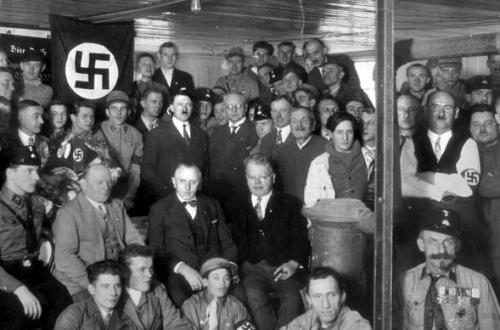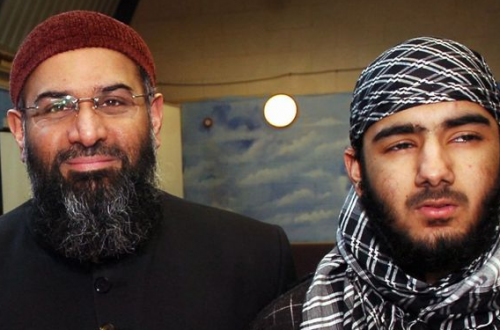From the Socialist Worker, 2007:
The low conviction rate needs to be challenged. It sends a message to men that they can get away with rape, and to women that there’s little point reporting it. It is a reflection of the value that our society attaches to women. But we need to recognise that the answer to the problem of rape is not a legal one.
Right wing politicians try and use the issue of rape as a means to attack the “permissive” nature of our society and call for a stronger state to put things right – hence the demand for longer sentences for convicted rapists.
Focusing on longer sentences in a situation where most cases don’t even result in a conviction is unhelpful. It also means avoiding the cause of the problem.
The reasons for rape are embedded in the kind of society we live in. It occurs because women are oppressed – and to end it we need to end that oppression.
From the Socialist Worker, 2009:
Sexual violence is nurtured by a society where all women are routinely presented as sex objects and systematically degraded and oppressed.
…
As individual men and women we can, and often do, reject the sexism of our society. But as individuals we cannot abolish the cultural and social pressures that shape our attitudes and our relationships with each other.
That will require a movement for change in which working class men and women rely on each other to challenge our rulers – and learn in the process to value each other as equals.
From the Socialist Worker, 2012:
Women who report rape find their experiences trivialised, writes Siân Ruddick, while rapists are rarely brought to justice
The entire criminal justice system is stacked against women who experience rape—from the attitudes of the police to low conviction rates and low sentences.
…
The whole criminal justice system represents the most backward ideas in society. And the legal system reflects the reality of women’s oppression.
It is based on backward, reactionary ideas about women. It still draws on concepts set down in the days when women were seen as being owned by “their” men.
UPDATE
Here’s the Socialist Workers Student Society on rape:
We, like many others in the student movement, were disgusted and appalled by the comments made about rape in connection with the Julian Assange case by Tony Benn, George Galloway, and others. Statements undermining rape or rape victims are not exclusive only to the Assange case. They take place in the context of the “Lad” culture on university campuses, with “Lads” magazines and websites like Unilad that consistently glorify, joke about or dismiss rape. Clearly, the student movement must make a stand over these issues.
…
Whatever people on the NEC think of Tony Benn and George Galloway, their influence and support among wide layers of students and in broader society means their words have to be criticized and challenged. This is why we will be opposing the amendment put forward by Student Broad Left, which we believe does not go far enough in either criticizing or challenging their words. We stand by the assertion in our amendment that ‘Opposition to imperialism must not lead to a lack of support for women’s rights or inaction over rape allegations’.
We also need to develop an atmosphere on campus where sexist ideas and actions are confidently challenged. On a number of campuses SWSS members have been part of doing precisely this. At Cambridge when DSK was invited by the Cambridge Union we worked with others to make clear he was strongly opposed amongst the student body. At Portsmouth when student societies organised a naked calendar we built a campaign against it, including hosting discussions on fighting women’s oppression and calling a Student Union meeting to debate the issues. At Sussex we helped initiate a campus wide solidarity protest against sexism in response to a series of sexual assaults on campus. At Essex we campaigned against the Student Union hosting a “Play Boy Bunny” event.
These kind of responses are essential to challenging sexism and creating an atmosphere on campus where it is unacceptable. They need to be supported by resources and training from the NUS and proactive campaigning to challenge the increasing acceptability of sexism on our campuses.


